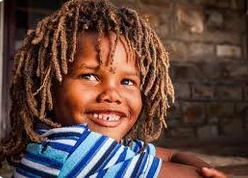
support@yorubalibrary.com
+2348073529208, 07038599574

The arrival of a child transforms a family. But the arrival of two children at once? This is an event that many cultures around the world regard as extraordinary. In Yoruba culture, the birth of twins—known as Ejìre or Ìbejì—is considered a special blessing, a mark of good fortune and divine favor. This blessing is immediately acknowledged through the powerful, pre-ordained names given to the children: Taiwo and Kehinde. These are not mere sequence-of-birth labels; they are a narrative, a spiritual contract that tells the story of their very first collaboration.
Meaning of Ejìre (Twins) in Yoruba Culture
Before we meet the individuals, it's important to understand the unit. In Yoruba land, twins are treated with particular honour. Their birth was historically linked to the deity Ọ̀ṣun, the goddess of fertility, love, and abundance, who is often depicted with twin children. The belief is that twins share one soul across two bodies, creating a bond that's beyond the physical realm.
This reverence is shown in customs like the commissioning of Ère Ìbejì (Ibeji figures). If a twin passed away, a master carver would be asked to create a wooden figure to represent the deceased child. The mother would care for this figure—washing, feeding, and clothing it—to honor the spirit of the child and maintain the cosmic balance, ensuring the living twin continued to thrive. This practice underscores the profound spiritual importance placed on the twin relationship.
Táíwò (Taiye): The Pioneer
The firstborn twin is named Táíwò, a name derived from the phrase "Tó-ayé-wò" which translates directly to "The one who comes to inspect/taste the world."
This name is foundational to the Yoruba understanding of the twins' roles. Taiwo is not simply the "older" one in a chronological sense. They are the designated scout, the brave ambassador sent by the pair to determine if the world outside the womb is a worthy and hospitable place for their arrival. This assigns to Taiwo a role of courage, curiosity, and initiative from the very first moment.
Characteristics and Parental Guidance for a Taiwo Child
A child named Taiwo is often observed to embody the spirit of a pathfinder. They may be the first to attempt new things, displaying a natural boldness and a sense of adventure. Parents might notice this child leading the way in play, being more outwardly expressive, or showing a protective streak toward their sibling.
• Parental Insight:
Encourage Taiwo's innate leadership and courage. Provide them with opportunities to explore safely and make independent choices. Recognize their role as the first line of interaction for the pair and guide them to include their sibling, reinforcing their team dynamic rather than creating competition.
Kéhìndé (Kehinde): The True Elder
The second-born twin is named Kéhìndé, from the phrase "Omo kehin dé" meaning "The child who comes last has arrived."
To call Kehinde merely the "younger" twin is a significant misreading. Yoruba tradition affirms that Kehinde is actually the older sibling in wisdom and spirit, the one who sent Taiwo on the reconnaissance mission. This position implies patience, strategic thinking, and a more observant, reflective nature. Kehinde waited for the report before committing to the journey.
Characteristics and Parental Guidance for a Kehinde Child
A Kehinde child is often perceived as the more deliberate and observant of the two. They may learn by watching their sibling's trials and errors, often mastering a skill quickly once they decide to try. They can be thoughtful, perceptive, and possess a quiet strength. Many believe the Kehinde holds a stronger connection to the family's spiritual lineage.
• Parental Insight: Nurture Kehinde's thoughtful and analytical nature. Ensure they have space and quiet time to process the world. Avoid always grouping them as "the twins"; acknowledge their individual thoughts and feelings. Their strength is often in their depth, not always their speed.
The Sacred Bond: More Than Just Siblings
The relationship between Taiwo and Kehinde is the ultimate partnership. Their names tell a complete story of mutual dependence and trust that began before birth. This bond is celebrated throughout their lives. In many families, what is given to one must be given to the other to maintain harmony and balance, a practice stemming from the belief in their shared soul.
Oriki for Twins (Ejìre)
Find below the most authentic version of Twins' Eulogies.
Ẹ̀jìrẹ́ okin
Ẹ̀jìrẹ́ ti mo bi, ti mo jo
Ẹ̀jìrẹ́ ti mo bi, ti mo yó
Ẹ̀jìrẹ́ ara isokun
Omó édun nsere lori igi
Ẹ̀jìrẹ́ wo ile olowo ko ló
O wo ile olola ko ló bé
Ile alakisá lo ló
Ẹ̀jìrẹ́ só alakisá di alasó
O só otosi di olowo
Bi Taiwo ti nló ni iwaju
Bééni, Kéhinde ntó lehin
Taiwo ni omode, Kehinde ni ebgon
Taiwo ni a ran ni sé
Pe ki o ló tó aiye wò
Bi aiye dara, bi ko dara
O tó aiye wò. Aiye dun bi oyin
Taiwo, Kehinde, ni mo ki
Eji woró ni oju iya ré
O de ile oba térin-térin
Jé ki nri jé, ki nri mu
Conclusion:
The names Taiwo and Kehinde are a gift of meaning, a cultural framework that guides parents in recognizing the distinct personalities and profound connection of their twins.
Need more? Browse through our Oriki Gallery today, at zero cost.

Your baby was born with locked hair? Learn about t…

Check out what Aina really mean in Oruko Amuntorun…